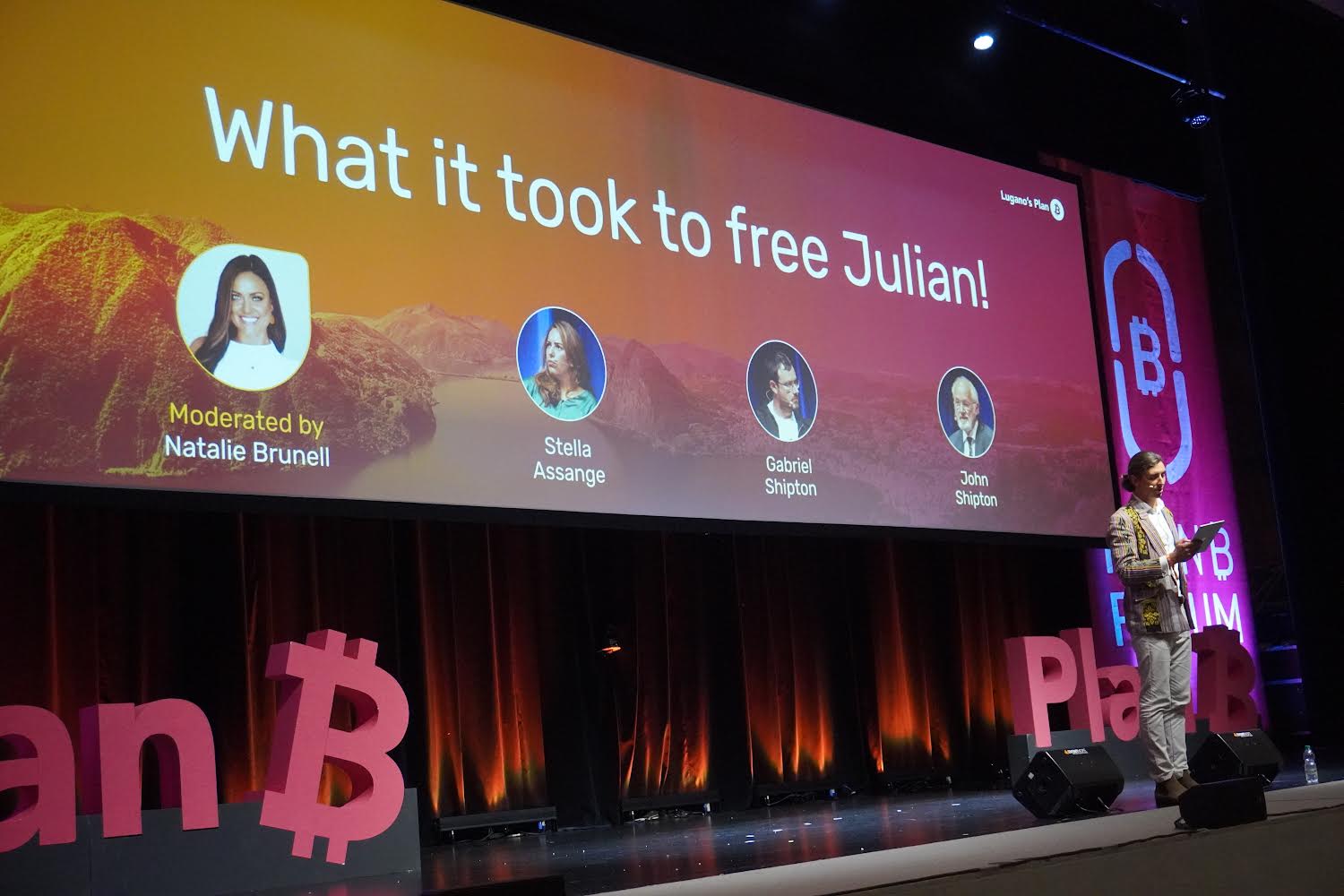“I think Bitcoin has had some similar problems around demonization,” said Gabriel Shipton, a film producer and a strong advocate for his brother Julian Assange.
After a lengthy, 14 year court battle, the WikiLeaks founder Julian Assange returned to Australia in June 2024 after reaching an agreement that guaranteed his freedom but compelled him to enter a guilty plea to breaking US espionage law.
Shipton attended the Plan B Lugano conference along with Assange’s wife and human rights defender Stella Assange and John Shipton, Assange’s father, who’s been at the forefront of advocating for his son’s freedom as an advisor to the Assange campaign.
“Julian was demonized in the press for many, many years, and that is a narrative that we as advocates of the game had to unwind,” said Gabriel.
What It Took To Free Assange? Upwards Of $30 Million And Bitcoin Community!
Assange’s father, John, acknowledged the contribution of Bitcoin, and said that “using Bitcoin to continue publishing, to keep online, to make WikiLeaks totally uncensorable, and having that uncensorable money combined with the architecture of the Internet that made the website uncensorable, is a testament to the power of Bitcoin and the power of Bitcoin to give us that personal freedom to transact.”
“What it took to free Julian!” featuring @Stella_Assange, @GabrielShipton & John Shipton. Moderated by @natbrunell. A powerful discussion you can’t miss!#PlanBForum #FreeAssange pic.twitter.com/sYsDUgwVWB
— Lugano Plan ₿ (@LuganoPlanB) October 25, 2024
Addressing the room full of attendees, Gabriel said, “Everyone here understands the outsized contribution of the Bitcoin community and the broader crypto community in basically bankrolling Julian’s freedom.”
“I think what the Bitcoin community and the broader crypto community really felt was that this was a very costly exercise—to get Julian free,” said Gabiel. “I think we’re still tallying up everything, and up to $30 million has been spent just across campaign fees and legal fees.”
It was a global campaign. “Tens of thousands of individual donations as well as large donations from very wealthy Bitcoin owners and very wealthy people in the crypto community came in, who really put their money where their mouth is when it came to what they stand for in terms of freedom of speech and general freedom of being able to say what you want, like what Julian represented – freedom of information.”
Was the US basically criminalizing journalism?
“There’s always been cowardice in journalism, unfortunately,” said Stella. “And there have also always been courageous, usually individual journalists, sometimes working in difficult circumstances within their newsrooms, where editors are trying to shut them down and so on. And what Julian and WikiLeaks managed to do was break this kind of existing mould and do journalism in a different way.”
“There was a distaste for the prosecution of Julian Assange within the US administration,” insisted Stella.
Julian Assange was first arrested in 2010, just seven days after WikiLeaks started publishing data. He was arrested in the UK.
“He wasn’t actually formally charged with anything until he was forcibly kidnapped, essentially, from the Ecuadorian embassy in April 2019. And then the reality of what was going on in the background became public for everyone to see. The US had charged him, and after a month or so, charged him with 17 counts,” said Stella Assange.
“The case should have been thrown out from the beginning, but the UK, of course, basically facilitated this extradition,” added Stella. “Afterwards, the Wall Street Journal published a behind-the-scenes about how a plea deal was reached.”
After pleading “guilty to journalism,” Assange chose freedom. “But at the cost of justice,” said Stella.
The post Julian Assange And Bitcoin Face Similar Problems; Both Were Demonized: Says Assange Family appeared first on .
